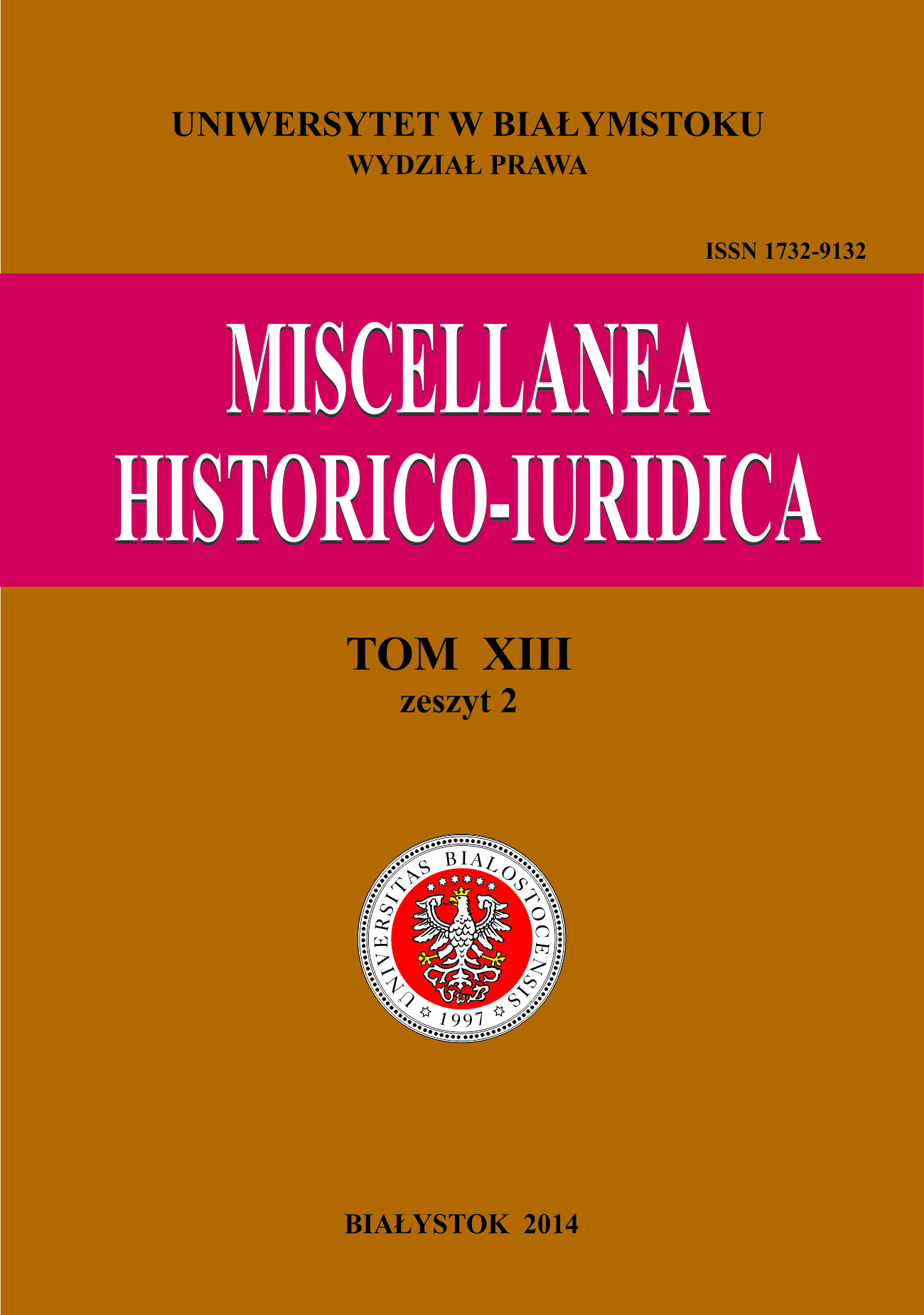Żądanie wyłączenia pracownika organu w postępowaniu administracyjnym w kontekście konkubinatu
Słowa kluczowe:
wyłączenie pracownika, postępowanie administracyjne, konkubinatAbstrakt
The ideal model of the administrative procedure assumes that public authorities shall proceed in an impartial manner. The exclusion from administrative proceedings of entities for which there is reasonable suspicion to act during procedure with an element of bias is a guarantee of objective settlement of the matter. The essence of the exclusion is primarily a permanent elimination of an employee in a particular situation or depriving him of legal possibilities to influence the course of the proceedings and the content issued in case settlement. The article poses the following questions: does cohabitation justify such an exemption, and what are the consequences of both justified and unjustified exclusion of an employee of an administrative body? Analysis of issues for exclusion under the provisions of the Code of Administrative Procedure in the context of cohabitation tends to make some reflections. Firstly, consideration of the evidence in general context is required in the face of the increasingly frequent occurrence of partnerships referred to in Polish nomenclature as concubinage. This would provide greater safeguards for the principle of objective truth due to the fact that the process itself would be subject to exclusion from the law, and not at the request of the employee’s superior (as is currently the case). Secondly, consideration of the type of legal act for such exclusion as well as the possibility of replacing the provision issued in such cases by another legal act the measure of which is the type of management ordinance required.
Bibliografia
Adamiak B., Borkowski J., Kodeks postępowania administracyjnego, wyd. 5, Warszawa 2006.
Boć J., Prawo administracyjne, Wrocław 2007.
Ćwiek W., Konkubinat, Warszawa 2002.
Chróścielewski W., Gmina jako strona postępowania administracyjnego – konsekwencje prawne a uchylenia art. 27 a kpa, „Samorząd Terytorialny” 1995, nr 4.
Chróścielewski W., Organ administracji publicznej w postępowaniu administracyjnym, Warszawa 2002.
Janowicz Z., Postępowanie administracyjne, Warszawa 1987.
Kmiecik Z., Żądanie wyłączenia pracownika organu w postępowaniu administracyjnym, „Przegląd Prawa Publicznego” 2009, nr 3.
Kubisa-Ślipko A., Słownik wyrazów bliskoznacznych, Wałbrzych 2000.
Pierzchała E., [w:] Kodyfikacja postępowania administracyjnego na 50-lecie KPA, red. J. Niczyporuk, Lublin 2010.
Rozmaryn S., O zasadach ogólnych kodeksu postępowania administracyjnego, „Państwo i Prawo” 1961, nr 12.
Slany K., Alternatywne formy życia małżeńsko-rodzinnego w nowoczesnym świecie, Kraków 2002.
Wróbel A., [w:] M. Jaśkowska, A. Wróbel, Kodeks Postępowania Administracyjnego. Komentarz, Kraków 2005.
Żukowski L., [w:] Ł. Żukowski, R. Sawuła, Postępowanie administracyjne i postępowanie przed Naczelnym Sądem Administracyjnym, Warszawa 2002.
Wyrok NSA z 18 kwietnia 2012 r., II OSK, 40/20, LEX nr 1219149.
Wyrok WSA w Bydgoszczy z 7 marca 2012 r., II SA/Bd 47/12, LEX nr 1138341.







